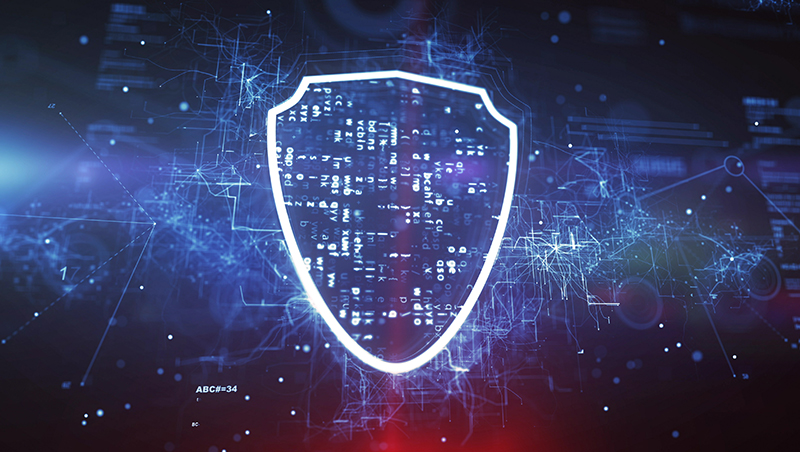Four steps you can take to lower the risk of a ransomware attack
With the ever-increasing frequency in attacks, it's likely many of us will be targeted by ransomware


Because it's relatively inexpensive to develop and launch ransomware and a single item of crypto-malware can generate massive revenue the volume of this type of attack is increasing.
When it comes to dealing with the risk of a ransomware attack, you can choose either to cross your fingers and hope for the best, or take active steps to mitigate the risks of being attacked and the possible consequences.
With the ever-increasing frequency in attacks, it's likely that many of us will be targeted at some stage, so here are some steps you can take to both reduce the likelihood of being affected by ransomware, and lessen the impact should the worst happen.
Back up data regularly
Almost all businesses will already have data back up policies. However, it's essential to back up data onto an offline backup subsystem rather than just copying files to another live' system on your corporate network, otherwise ransomware will be able to affect your backup files. A back up and disconnect' policy is worth considering, so that data isn't being copied onto a permanently connected file server.
Personal users tend to back up on a more infrequent basis, so it's important to establish a regular backup routine across all devices. It's currently impossible to decipher files properly encrypted by modern crypto-malware, so the only way to save your data from a successful ransomware attack is through regular file backups.
Use a reliable security solution
There are a wide range of antivirus solutions available for both business and personal use; see our recommendations for the best antivirus tools available this year.
For businesses, an anti-ransomware solution that's able to protect shared folders should also be considered. Some solutions leave hosts inside the security perimeter unprotected, meaning that any cryptor penetrating via email or a vulnerable browser will also affect shared folders on corporate servers. Under this scenario, only server-side security software can defend the data.
Sign up today and you will receive a free copy of our Future Focus 2025 report - the leading guidance on AI, cybersecurity and other IT challenges as per 700+ senior executives
Whichever tool you choose, it should be turned on at all times, with as many security layers enabled as possible.
Always keep software updated on all the devices you use
Ransomware doesn't just affect PCs. Security software needs to be able to protect Mac computers, virtual machines and mobile devices, as well as email systems. Keeping this software up to date is a vital part of remaining secure, as updates are regularly released to combat new strains of malware.
Although it can be tempting to skip app and security updates and install them later, it's easy to forget and updates for some apps contain vital patches against vulnerabilities which could be exploited by cyber criminals. Resist the temptation to ignore the update warnings to ensure device apps are as up-to-date as possible.
Educate employees and IT teams
People are often the most vulnerable element. Businesses should teach their employees about IT security basics, including raising awareness of phishing and spear-phishing and the security implications of opening any email attachment that looks suspicious.
There's no such thing as being over-careful; even if an email looks like it's from a trusted source, it's worth checking with a simple phone call to the sender if there are unexpected attachments or links present.
Esther is a freelance media analyst, podcaster, and one-third of Media Voices. She has previously worked as a content marketing lead for Dennis Publishing and the Media Briefing. She writes frequently on topics such as subscriptions and tech developments for industry sites such as Digital Content Next and What’s New in Publishing. She is co-founder of the Publisher Podcast Awards and Publisher Podcast Summit; the first conference and awards dedicated to celebrating and elevating publisher podcasts.
-
 Everything we know so far about the Nike data breach
Everything we know so far about the Nike data breachNews Hackers behind the WorldLeaks ransomware group claim to have accessed sensitive corporate data
-
 There’s a dangerous new ransomware variant on the block – and cyber experts warn it’s flying under the radar
There’s a dangerous new ransomware variant on the block – and cyber experts warn it’s flying under the radarNews The new DeadLock ransomware family is taking off in the wild, researchers warn
-
 Hacker offering US engineering firm data online after alleged breach
Hacker offering US engineering firm data online after alleged breachNews Data relating to Tampa Electric Company, Duke Energy Florida, and American Electric Power was allegedly stolen
-
 Cybersecurity experts face 20 years in prison following ransomware campaign
Cybersecurity experts face 20 years in prison following ransomware campaignTwo men used their tech expertise to carry out ALPHV BlackCat ransomware attacks
-
 15-year-old revealed as key player in Scattered LAPSUS$ Hunters
15-year-old revealed as key player in Scattered LAPSUS$ HuntersNews 'Rey' says he's trying to leave Scattered LAPSUS$ Hunters and is prepared to cooperate with law enforcement
-
 The Scattered Lapsus$ Hunters group is targeting Zendesk customers – here’s what you need to know
The Scattered Lapsus$ Hunters group is targeting Zendesk customers – here’s what you need to knowNews The group appears to be infecting support and help-desk personnel with remote access trojans and other forms of malware
-
 Impact of Asahi cyber attack laid bare as company confirms 1.5 million customers exposed
Impact of Asahi cyber attack laid bare as company confirms 1.5 million customers exposedNews No ransom has been paid, said president and group CEO Atsushi Katsuki, and the company is restoring its systems
-
 The US, UK, and Australia just imposed sanctions on a Russian cyber crime group – 'we are exposing their dark networks and going after those responsible'
The US, UK, and Australia just imposed sanctions on a Russian cyber crime group – 'we are exposing their dark networks and going after those responsible'News Media Land offers 'bulletproof' hosting services used for ransomware and DDoS attacks around the world


